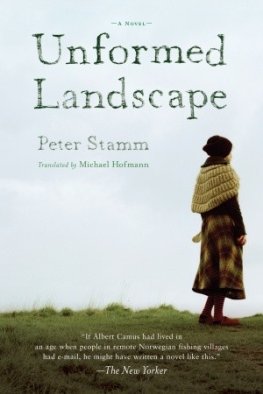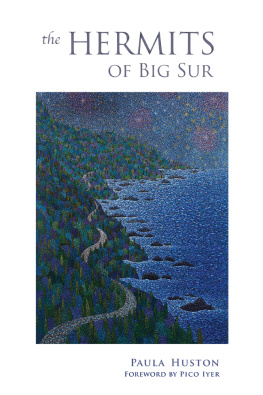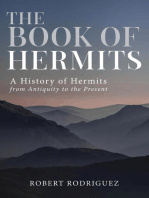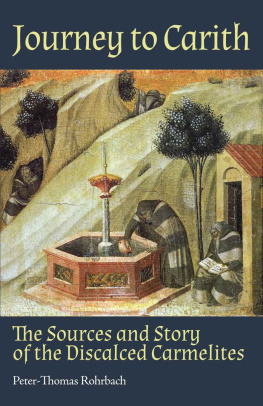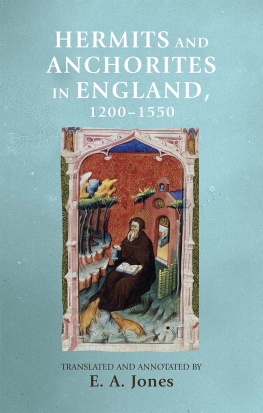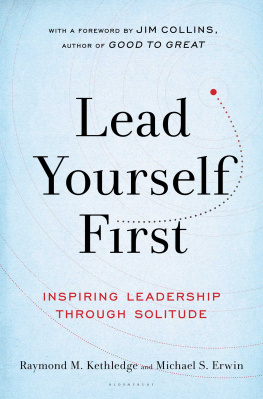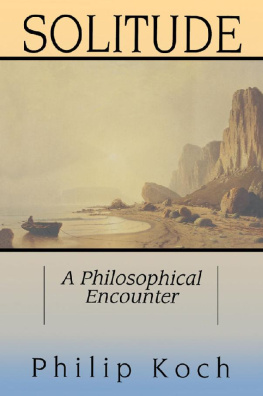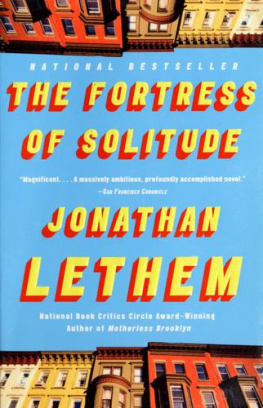Peter France - Hermits: The Insights of Solitude
Here you can read online Peter France - Hermits: The Insights of Solitude full text of the book (entire story) in english for free. Download pdf and epub, get meaning, cover and reviews about this ebook. year: 1996, publisher: Random House, genre: Romance novel. Description of the work, (preface) as well as reviews are available. Best literature library LitArk.com created for fans of good reading and offers a wide selection of genres:
Romance novel
Science fiction
Adventure
Detective
Science
History
Home and family
Prose
Art
Politics
Computer
Non-fiction
Religion
Business
Children
Humor
Choose a favorite category and find really read worthwhile books. Enjoy immersion in the world of imagination, feel the emotions of the characters or learn something new for yourself, make an fascinating discovery.
- Book:Hermits: The Insights of Solitude
- Author:
- Publisher:Random House
- Genre:
- Year:1996
- Rating:4 / 5
- Favourites:Add to favourites
- Your mark:
- 80
- 1
- 2
- 3
- 4
- 5
Hermits: The Insights of Solitude: summary, description and annotation
We offer to read an annotation, description, summary or preface (depends on what the author of the book "Hermits: The Insights of Solitude" wrote himself). If you haven't found the necessary information about the book — write in the comments, we will try to find it.
Hermits: The Insights of Solitude — read online for free the complete book (whole text) full work
Below is the text of the book, divided by pages. System saving the place of the last page read, allows you to conveniently read the book "Hermits: The Insights of Solitude" online for free, without having to search again every time where you left off. Put a bookmark, and you can go to the page where you finished reading at any time.
Font size:
Interval:
Bookmark:
Contents
Ours is an age where solitude tends to be discussed in the context of the problem of loneliness. However in previous ages the capacity to seek fulfillment outside society has been admired and seen as a measure of discernment and inner security. In this lucid and highly readable book, Peter France shows how hermits, from the Taoists and Ancient Greeks to the present day, have something vitally important to say to a society that fears solitude.
Peter France spent the first 15 years of his working life as a civil servant in the Fiji Islands. After a spell as an academic, he joined the BBC, first in radio where he launched and presented Kaleidoscope, and later in television, where he wrote and presented programmes such as Everyman and Timewatch. His most recent books are The Rape of Egypt and Greek as a Treat. He lives in Devon but spends much of his time on the Greek island of Patmos.

This ebook is copyright material and must not be copied, reproduced, transferred, distributed, leased, licensed or publicly performed or used in any way except as specifically permitted in writing by the publishers, as allowed under the terms and conditions under which it was purchased or as strictly permitted by applicable copyright law. Any unauthorized distribution or use of this text may be a direct infringement of the authors and publishers rights and those responsible may be liable in law accordingly.
Version 1.0
Epub ISBN 9781473511637
www.randomhouse.co.uk
PIMLICO
An imprint of Random House
20 Vauxhall Bridge Road,
London SW1V 2SA
Random House UK Ltd Reg. No. 954009
First published by Chatto and Windus 1996
Pimlico edition 1997
1 3 5 7 9 10 8 6 4 2
Peter France 1996
The right of Peter France to be identified as the author of this work has been asserted by him in accordance with the Copyright, Designs and Patents Act, 1988
ISBN 9780712673631
To Felicia
I am very grateful for the helpful comments of friends on the island of Patmos, including Carraigh B. Thompson, Barbara Bonfigli and Jacqueline Delia. The book Hermits and Hermitages of Patmos (in Greek) by Sister Anthousa of the Monastery of Evangelismos was an early inspiration, and my ideas were clarified and considerably enriched by conversations with my spiritual father, Bishop Kallistos of Diokleia.
Peter Scorer of the Department of Russian, Exeter University, helped with advice and research material on the hermits of Russia, and Robert Lax not only set me right about his friend Thomas Merton, but convinced me that the riches of the solitary life are still available, most particularly to the hermit who loves people.
Euan Cameron, friend and editor, has been with the book since the conception of the original idea. It has been greatly helped by his critical vigilance; the errors of fact or lapses in taste that remain are all my own work.
I acknowledge with gratitude the following permissions for quotation: St Vladimirs Seminary Press for Russian Letters of Direction; New Directions Publishing Corp. for Seeds of Contemplation; Farrar, Straus & Giroux for Disputed Questions; and the Merton Legacy Trust for Contemplation in a World of Action.
The human impulse to take off and live alone is an ancient one and societies down the ages have varied in their responses to it. From the earliest times there have been people who felt at their best in company and others who felt happiest on their own.
The two attitudes were at the heart of the earliest philosophies of the good life which took shape in China in the sixth century BC , Confucianism and Taoism. They shared a common aim: to teach people how to be fulfilled. Both accepted that a sense of self-confidence and serenity were essential but they differed on the way to achieve this. The system of Confucius was through discharging social obligations; that of Lao-Tse was through avoiding them.
Traditional Chinese society had developed a clearly defined system of social relations: between father and son, sovereign and subject, husband and wife, brother and brother and, finally, friend and friend. Reciprocal obligations recognised by everyone and teachable to children had been established for each relationship.
Lao-Tse had little use for society and was completely indifferent to the social status of the individual. Social organisation was anathema to him and social participation of any kind an impediment to the freedom and so to the proper development of the individual. He was an older contemporary of Confucius and had been an official at court but, tradition has it, he became disillusioned with court life and fled through the western passes. The guardian of the route persuaded him, before leaving, to compose the Tao te Ching, which became a manifesto for the solitary life.
The essence of its teaching is that it is by withdrawing rather than by asserting ourselves, through retreat rather than pursuit, by inaction rather than action that we acquire wisdom. We have to unlearn the superficial cleverness that we have developed to get on in society, to cease to compete with others, and to learn to live alone.
Solitude is healthy, according to the Taoist, because it removes us from the mutilating pressures of society and exposes us to the healing influence of nature. We are part of the natural world and should allow our personalities to be shaped by natural forces. The short-lived storms of wind and rain suggest the futility of violent action; vegetable growth matures, culminates and subsides in response to a natural impulse. The person who seeks truth should imitate this.
The highest goodness is like water. Water is the symbol of humility. It always seeks the lowest place, it dwells in regions which people detest and yet it is good and necessary to all living things: it benefits all things and does not compete with them. Further, water best illustrates the principle of wu wei, or effective inactivity, because it is soft and yielding but can wear away rock: There is nothing softer or sweeter than water and yet there is nothing better for attacking strong and hard things.
The Tao te Ching articulates, in a poetic form, a floating group of ethical principles which had long been in existence in China before the age of Lao-Tse and which were to inspire hermits in other lands for two and a half thousand years. They reject ambition, aggression, acquisitiveness and material prosperity. In place of these learned responses to organised society they teach humility, poverty, independence and self-knowledge:
He who rises himself on tiptoe cannot stand;
he who straddles cannot walk.
*
He who knows he has enough is rich
*
He who overcomes others has force;
he who overcomes himself is strong.
*
In habitation, stay close to the land;
in meditation, go deep in the heart.
*
To speak little is natural.
High winds do not last all morning;
heavy rains do not last all day.
*
There is no greater sin than desire,
No greater calamity than envy,
No greater adversity than pining for something for oneself.
Therefore he that knows enough is enough will always have enough.
The island of Patmos, where I spend most of my time, has been, for over a thousand years, a place for hermits. Their tiny white houses were hidden away deep in remote valleys or on the peaks of mountains. They were monks from the Monastery of St John who felt called to the solitary life and were given permission by the abbot to live alone during the week and return to the monastery at-weekends to take part in the liturgy and to receive the sacrament.
Next pageFont size:
Interval:
Bookmark:
Similar books «Hermits: The Insights of Solitude»
Look at similar books to Hermits: The Insights of Solitude. We have selected literature similar in name and meaning in the hope of providing readers with more options to find new, interesting, not yet read works.
Discussion, reviews of the book Hermits: The Insights of Solitude and just readers' own opinions. Leave your comments, write what you think about the work, its meaning or the main characters. Specify what exactly you liked and what you didn't like, and why you think so.


